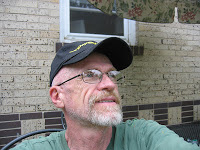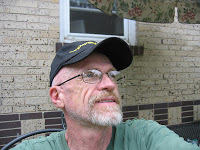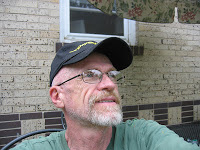Ah, escape, the act of breaking free. This word could well be one more synonym for “coming out”. This does seem to be a recurring theme, if one chooses to so interpret, for many of our Story Telling topics. It may be stretching a metaphor, something I seem at times to excel at, but I think we can view our LGBT Community Center here in Denver as an escape hatch and participation in this group for many as an accelerant. For me personally it has not been so much an accelerant as a re-fueling station. Story Telling has been a validation for me that what started in the mid-1970’s, thanks to the hard work and dedication of a small cadre of like-minded queer folk, was certainly worth the effort. I was not part of that initial group but did hitch my wagon to the Center in 1976.
Areas many of us LGBTQ folks have had experience trying to escape are the mental health issues we face in significantly greater proportions than the non-Queer community. Many of us have had very significant issues with depression, anxiety, addiction and suicide. The suicide rates remain, for LGBTQ youth in particular, disturbingly high even in this supposed age of post-liberation. The Trans community in particular is at grave risk for both suicide and murder.
Mental health issues among LBGTQ people are complex and in need of contextualization, intersectionality analysis and exploration with knowledgeable queer professional providers. It would be nice to see these issues addressed with the same depth and vigor that the sexual habits and health of gay men have been addressed in the last 40 plus years. Yes, certainly HIV was and remains a strong incentive to address how we fuck and the potential consequences of that but I must wonder about the very significant current and historical carnage from unaddressed mental health needs. These issues were prematurely thinning our numbers centuries before HIV came along and continue to this day.
A word of caution though in addressing depression in particular involves you and your provider not simply reaching for a pill or pills to address the problem. I am in no way saying that anti-depression medications do not serve a role and have been actual lifesavers for many. Do though proceed with caution, often easier said than done in our extremely fucked-up health care system so dominated by Big Pharma.
I read an interesting article in the NYT Sunday morning about how hard it is for many people to get off of antidepressants. They focused primarily on the difficulty some people had specifically getting off of Zoloft and Cymbalta. https://www.nytimes.com/2018/04/07/health/antidepressants-withdrawal-prozac-cymbalta.html?hp&action=click&pgtype=Homepage&clickSource=story-heading&module=photo-spot-region®ion=top-news&WT.nav=top-news
I’ve included a link to the article since I think it is important that the whole thing be read by anyone considering stopping their antidepressant or for that matter whether or to start one. This might be a great article to take to your mental health provider or primary care person if you think issues of depression are something that need to be addressed for you personally. It might piss them off a bit but they will get over it or you will hopefully find a new provider, though admittedly not an easy task in the current health care environment in this country.
Another piece I ran across in writing this was an article in The Guardian from May of last year by a fellow named Alexander Leon. He argues that we should be and I quote “ defiant in our acceptance of mental health problems in the same way we would about our sexuality or gender identity”.
A link to the piece: https://www.theguardian.com/commentisfree/2017/may/12/lgbt-mental-health-sexuality-gender-identity
Rather than describe our mental health issues as weakness, or perhaps a reason to seek out conversion therapy, a healthier and more spot on way to look at these issues is as “battle scars” to be addressed, a term used by Leon in the Guardian article. What is really remarkable is that so many of us have survived an at times unrelenting societal onslaught since an early age as a result of our budding identities. I am a firm believer that pharmaceuticals may sometimes play a role in addressing these battle scars but they should always be used in conjunction with strong Queer community support. So welcome one and all to SAGE Story Telling at the LGBT Community Center of Colorado and a grand escape from the often at times suffocating “hetero-normative” world we are born into.
© April 2018
About the Author
I was born in La Porte, Indiana in 1949, raised on a farm and schooled by Holy Cross nuns. The bulk of my adult life, some 40 plus years, was spent in Denver, Colorado as a nurse, gardener and gay/AIDS activist. I have currently returned to Denver after an extended sabbatical in San Francisco, California.









